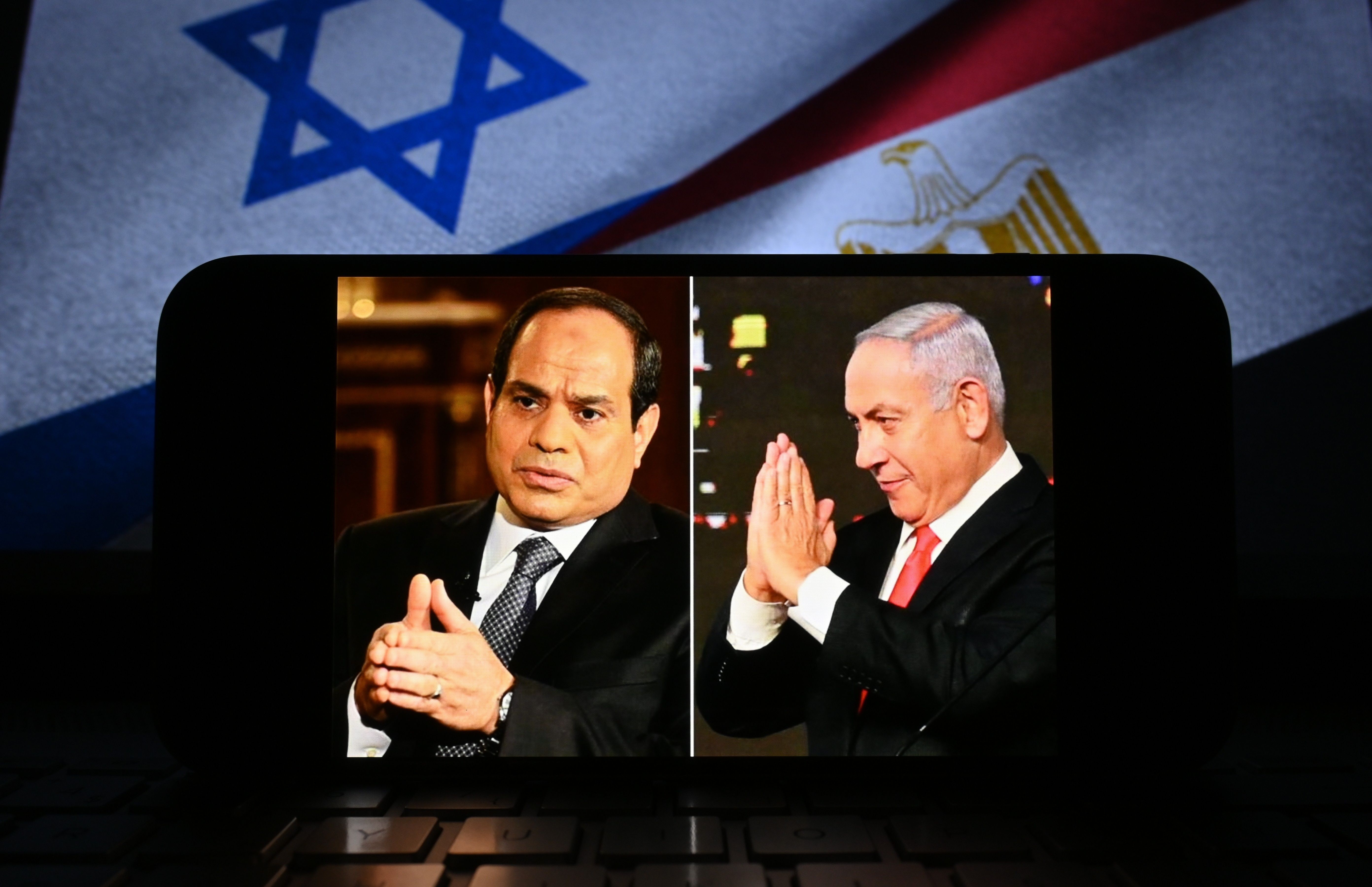In early August, Israeli energy company NewMed announced a record-breaking $35 billion deal to supply natural gas to Egypt, nearly tripling its current imports and binding Cairo’s energy future to its neighbor until at least 2040.
Though Egyptian officials were quick to frame this not as a new agreement but as an “amendment” to a 2019 deal, the sheer scale of the deal — the largest in Israel’s export history — is indicative of a deepening and dangerous dependence on its neighbor for its energy needs.
The pact is driven by the mutual, if asymmetric, political needs of two deeply entangled governments. For Egypt's President Abdel Fattah el-Sisi, the deal provides the energy needed to prevent domestic unrest. For Israeli Prime Minister Benjamin Netanyahu’s government, the benefits are especially outsized. The $35 billion pact provides a massive, long-term revenue stream and solidifies Israel’s status as a critical energy player in the Eastern Mediterranean. Furthermore, it delivers a strategic victory by binding the most populous Arab state into deep and lasting economic dependency.
But if the deal is a win for Israel, it is a product of desperation for Egypt. Cairo’s moves are driven by a non-negotiable domestic imperative: keeping the lights on. For the past several years, Egypt has been haunted by the specter of its own declining energy capacity. Once a net exporter of liquefied natural gas (LNG), the nation has seen its production steadily fall while domestic demand, fueled by a population of over 110 million, continues to soar.
The consequences have been severe, prompting the government to make difficult political choices. Searing summer heatwaves have led to rolling blackouts, crippling businesses and fueling widespread public discontent — a dangerous echo of the grievances that preceded the 2011 uprising.
President el-Sisi's government understands that political stability is directly wired to the electrical grid, and, as Prime Minister Mostafa Madbouly admitted last year, avoiding blackouts is a core imperative.
The numbers, as reported by Bloomberg and the Joint Organisations Data Initiative, paint a grim picture for Egypt: a daily gas deficit of billions of cubic feet and an energy import bill projected to climb towards $3 billion a month. Importing LNG is prohibitively expensive, and, as Egyptian officials noted, Israeli gas delivered via pipeline remains the cheapest and most reliable alternative, even with a 14.8% price hike from the previous deal.
This logic has forced the government's hand: as recently as May, a planned maintenance shutdown at Israel’s Leviathan field led to supply cuts for Egypt's vital fertilizer and petrochemical industries. The government opted to risk industrial disruption rather than face public backlash over residential power outages, a clear sign of its priorities.
This deepening energy dependency complicates Egypt’s historical role as the key Arab interlocutor on the Palestinian issue. Cairo’s ability to apply meaningful pressure on Israel is fundamentally constrained by the fact that Israel can, and has, turned off the gas tap for security and operational reasons.
This awkward dynamic was thrust into the limelight in late July. Egypt joined Saudi Arabia and Qatar in endorsing the New York Declaration, a major international framework for the "day after" in Gaza that called for Hamas to disarm and for the Palestinian Authority (PA) to assume governance. Just this week, Netanyahu publicly torpedoed this very plan, flatly rejecting any role for the PA. The move leaves Egypt, a key mediator in now-stalled talks, with minimal leverage to compel a change in policy from the nation that controls its energy supply.
As ceasefire negotiations falter, and lacking the leverage to sway either Israel or Hamas, Cairo is reduced to managing the conflict’s fallout — a task that increasingly demands a heavy-handed campaign of narrative control and political suppression at home. This was made clear in its response to a recent televised appeal by senior Hamas leader Khalil al-Hayya. Bypassing the government, al-Hayya addressed the Egyptian people directly. His plea for them to ensure "Gaza doesn't die of hunger" was widely interpreted as a thinly veiled accusation of state complicity — a calculated attempt to ignite public pressure against a regime hypersensitive to such challenges.
Cairo’s response was stern, it immediately unleashed a media counter-offensive. Diaa Rashwan, the head of Egypt’s State Information Service, condemned al-Hayya's rhetoric, calling it "a big mistake." Pro-government television hosts and newspaper columnists mobilized to denounce Hamas for its “betrayal.”
Even more telling was the state’s intervention with Al-Azhar, the world’s foremost seat of Sunni Islamic learning, based in Cairo. When its Grand Imam issued a statement condemning the “genocidal starvation” in Gaza and the “complicit” actions of states enabling it, the presidency reportedly forced its retraction.
The move exposes a deep-seated fear of any narrative remotely implicating Egypt in Gaza's suffering through its partial control of the Rafah border. Cairo officially insists it cannot act unilaterally at the crossing due to security agreements with Israel, but as the humanitarian crisis deepens, calls for Cairo to defy those protocols and rush humanitarian aid into the besieged strip grow louder.
International frustration is now spilling onto the streets globally, with protests targeting Egyptian embassies from the Hague to Tel Aviv. These demonstrations are potent symbols of the immense pressure building on Cairo, which is caught between an international public demanding it confront Israel and the reality that its own lights are kept on by that very same state.
- Why Arab leaders aren't helping the Palestinians in Gaza ›
- Egypt’s counterterrorism strategy in Sinai: challenges and failures ›
- Egypt's energy gamble has left it beholden to Israel ›
- Think a $35B gas deal will thaw Egypt toward Israel? Not so fast. | Responsible Statecraft ›

















